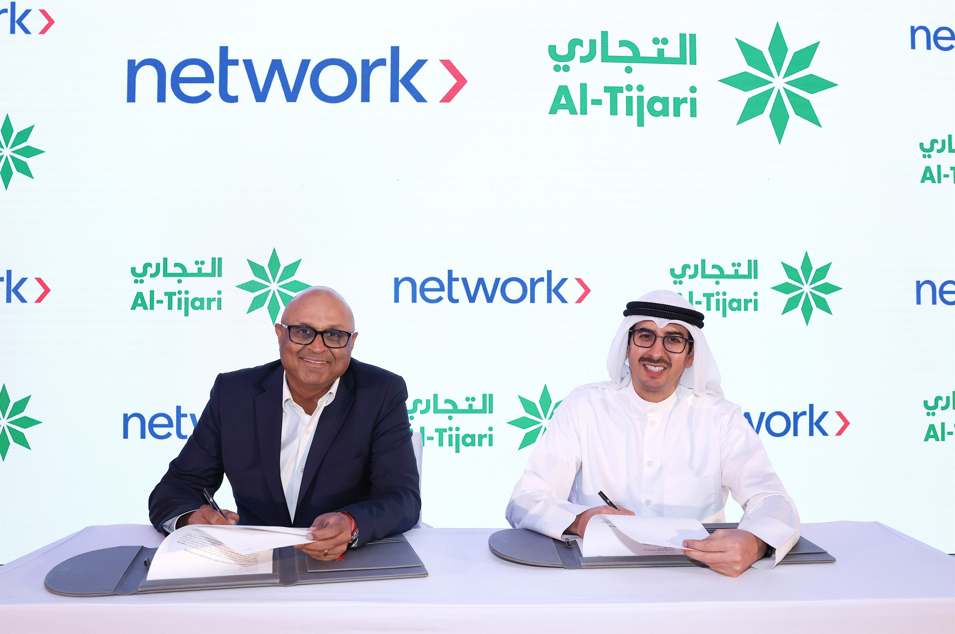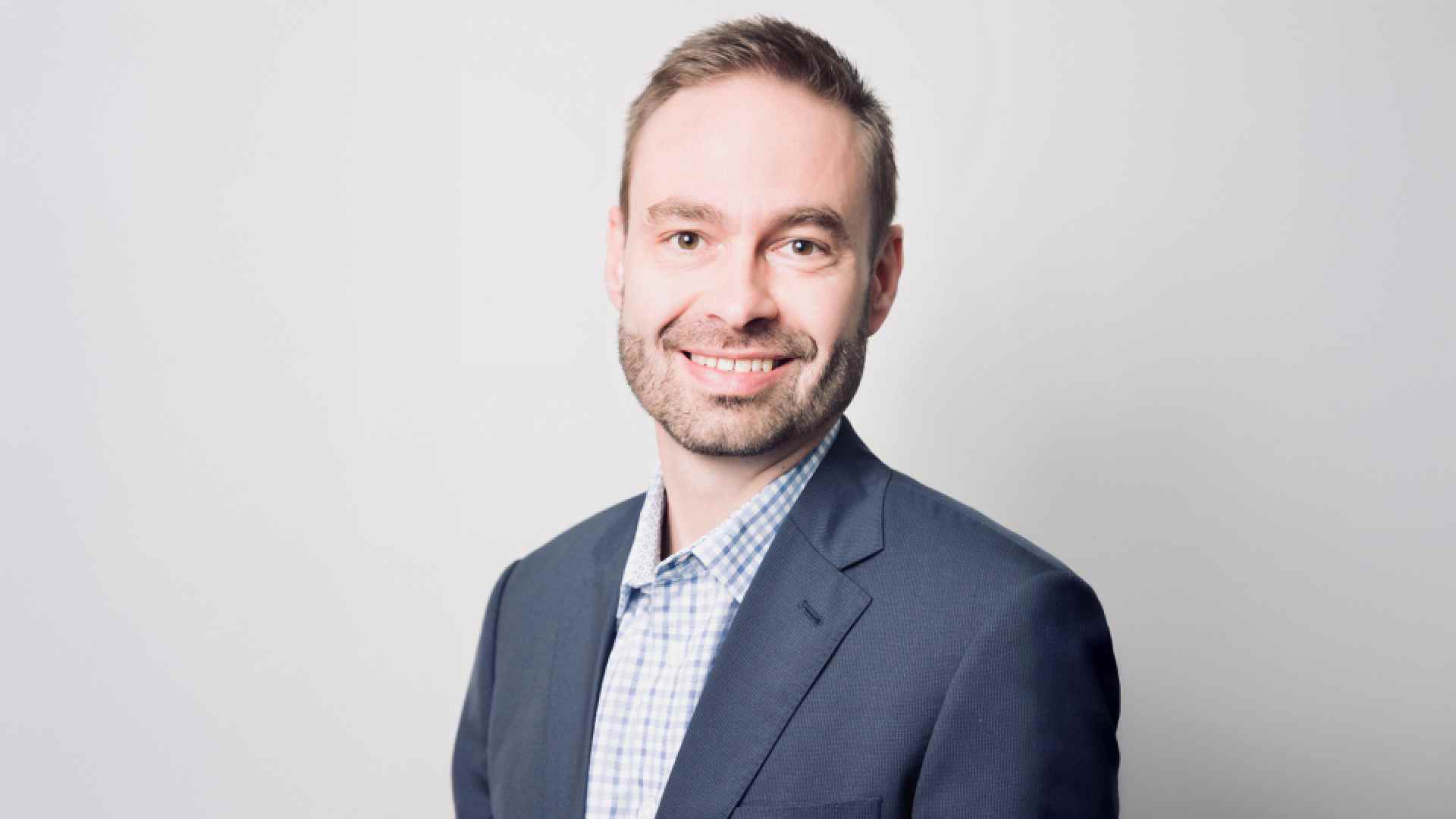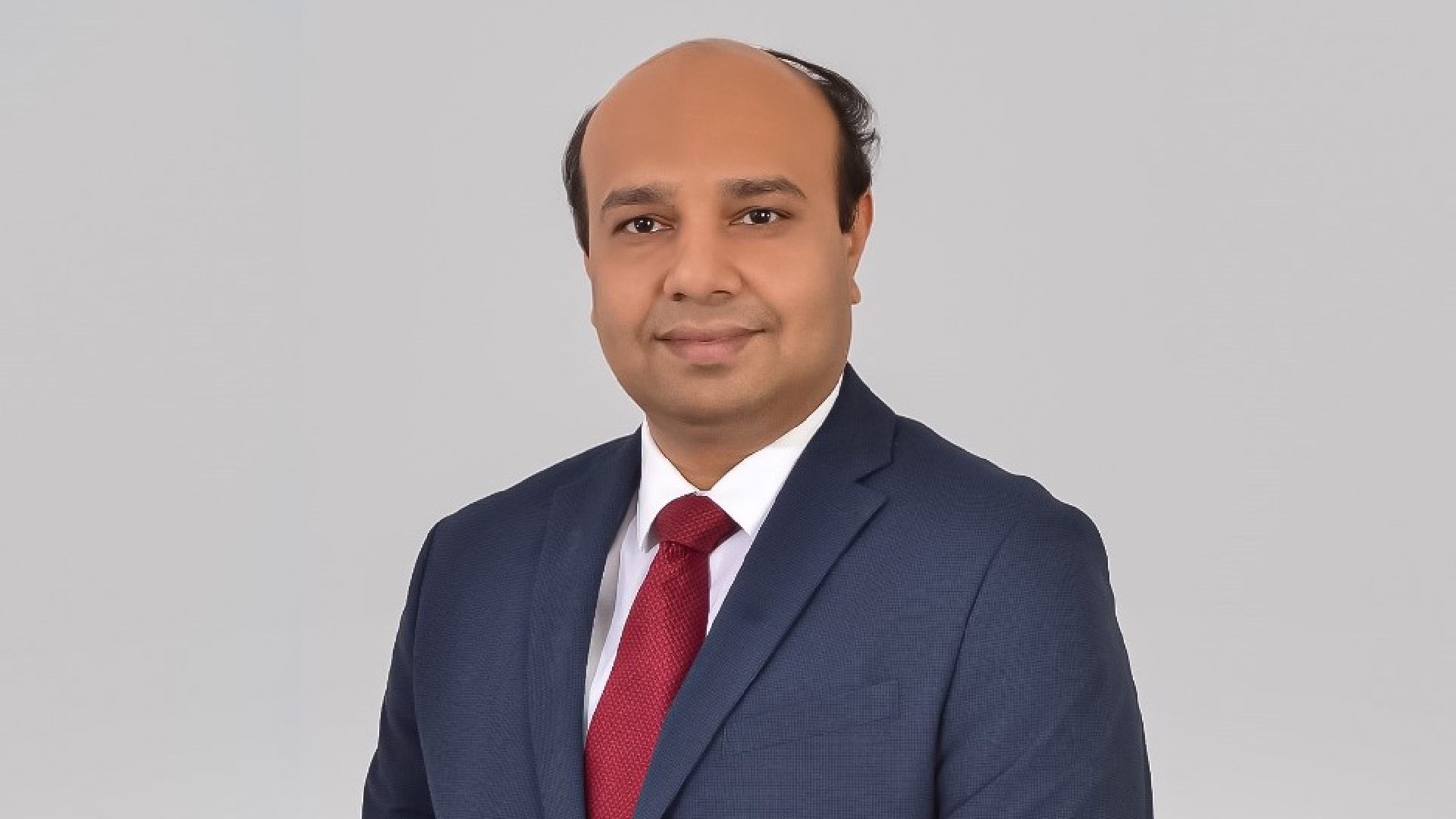Financial News
Commercial Bank of Kuwait Enters Strategic Partnership with Network International to Transform Digital Banking

Commercial Bank of Kuwait (Al-Tijari) and Network International (Network) today announced an intent to strategically collaborate to significantly enhance Al-Tijari’s ongoing digital transformation and payment innovation initiatives.
The partnership marks a significant milestone in the digital transformation journey of Al-Tijari, the second oldest and one of the leading financial institutions in Kuwait. Al-Tijari will leverage Network’s cutting-edge technology and expertise in end-to-end issuer processing capabilities, including fraud detection and prevention, tokenisation, cardholder self-serve application, advanced authentication, and instant issuance, among other services, to offer its customers progressive and innovative digital experiences.
Commenting on the partnership, Sheikh Ahmad Duaij Al-Sabah, Chairman of Commercial Bank of Kuwait, said: “Commercial Bank of Kuwait has a rich history of innovation and excellence in banking services that positions us among international banking standards. The partnership with Network International strengthens our leadership in the industry and signifies our ongoing commitment to our valued customers.”
Abdulaziz Al Zaabi, General Manager, Retail Banking Division, at Commercial Bank of Kuwait, added: “With this partnership, Commercial Bank of Kuwait aims to leverage Network’s vast knowledge and global experience in creating cutting-edge Card Payment solutions. Together, with our banking expertise, we aim to provide our customers with agile, secure, innovative services that are seamlessly executed and exceed their expectations.”
Nandan Mer, Group Chief Executive Officer of Network International, commented, “We are honoured to partner with Al-Tijari, a respected leader in Kuwait’s banking sector. Our collaboration is aimed at delivering innovative digital payment solutions to Al-Tijari’s growing customer base. As a preferred partner for several diverse financial institutions in the MEA region, we are excited to contribute our proven expertise in digital payment solutions to this dynamic partnership.”
“The Kuwaiti market is undergoing significant transformation, driven by unprecedented digital payment adoption,” Mer added. “We are committed to supporting this growth and eagerly anticipate our role in Al-Tijari’s journey towards digital excellence.”
Network International’s local and regional expertise in digital payments and financial inclusion aligns perfectly with Al-Tijari’s vision. This partnership represents a substantial advancement in Kuwait’s digital banking sector and affirms the shared dedication of both institutions to providing innovative financial services in the region.
Financial
UAE MOVES TOWARDS A MORE COMPLIANCE-FOCUSED TAX LANDSCAPE WITH RECENT VAT REFORMS: DHRUVA

Dhruva, a premier tax advisory firm with deep expertise across the Middle East, India, and Asia, stated that the UAE’s latest amendments to the VAT Law and the Tax Procedures Law, issued by the Federal Tax Authority (FTA) which are effective from 1 January 2026, represent a significant shift toward a more structured, and risk-focused tax environment. These amendments are expected to reinforce responsible compliance behaviors and reduce administrative friction for UAE businesses.
Dhruva noted that one of the most practical and welcoming changes is that it eliminates the requirement for taxpayers to self-issue tax invoices for imports subject to the reverse charge mechanism, which provides a lot of ease to businesses. Post series of amendments and clarifications issued by the FTA in 2025 in relation to self-issuance of tax invoices for imports, while a general exception was granted for such requirement for import of services, the same were required in case of import of goods for record-keeping purposes. This often-added administrative complexity without impacting the actual tax liability or input tax entitlement. Under the updated rules, taxable businesses have removed the obligation entirely, and hence, businesses will only need to maintain standard supporting documentation, such as invoices, contracts, and transaction records.
However, the firm highlighted that while some administrative burdens are being eased, compliance expectations are tightening elsewhere. One of the amendments gives the FTA authority to deny input tax recovery in cases linked to tax evasion – where a taxpayer knew or, critically, should have known, that a supply or its broader supply chain was connected to tax evasion. The law clarifies that taxpayers will be deemed to have been aware if they fail to verify the validity and integrity of the supply in accordance with procedures to be issued by the FTA.
Dhruva explained that historically, the responsibility to account for VAT rested primarily with the supplier, and recipients focused mainly on validating the tax invoice and meeting standard input-tax recovery conditions. In practice, however, the FTA has often linked a recipient’s input-tax eligibility to the supplier’s discharge of output VAT, denying recovery where gaps existed. The latest amendment now formally embeds this position in law, imposing additional due-diligence obligations on the recipient.
Ujjwal Pawra, Partner at Dhruva Consultants, commented, “This is a significant change. It is a clear message that the right to input tax recovery comes with the responsibility to validate the integrity of one’s suppliers and supply chain. Businesses must now demonstrate that they exercised practical, documented, and consistent due diligence. Clean invoices alone are no longer enough; what matters is a clean process.”
While the procedures and conditions are awaited, Dhruva advised that companies reassess onboarding procedures, supplier-vetting protocols, and documentation trails to ensure they align with the FTA’s expected standards.
Another material operational change is the introduction of a defined timeframe to act on credit balances. Under the amended framework, businesses will generally have up to five years from the end of the relevant tax period to request a refund of a credit balance or use that balance to settle tax liabilities, with targeted flexibility in specified cases where credits arise late in the cycle.
Transitional relief is also available for certain older credits around the changeover, which can help businesses address legacy positions in an orderly way. Dhruva said these changes reduce the risk of credits remaining unresolved on the balance sheet, improve cash flow planning, and encourage clearer internal ownership of refund positions.
Ujjwal further added, “The UAE has introduced a more robust operating framework for credit balances and refunds in line with international best practices. The message is simple: know your credits, map the deadlines, and file claims that are clear, complete, consistent, and easy to validate.”
Dhruva advised UAE businesses to act now with a finance-led approach. This starts with building a central credit-balance register by tax type and tax period, assigning an accountable owner, and tracking action dates so credits are either utilised or claimed in time. Businesses should also treat refund submissions as audit-ready files by preparing reconciliations, supporting documents, and a concise explanation of how the credit arose and why the amount is correct before submitting, rather than rebuilding the file after queries begin. In parallel, companies should prioritise older credit positions to assess whether they fall within the transitional relief window and avoid last-minute filings.
The firm also advised businesses to monitor any binding directions issued by the FTA and align their tax positions, documentation, and system settings accordingly to minimize interpretational differences and strengthen consistency over time.
Financial
5 SMART WAYS UAE TRAVELERS CAN PROTECT THEIR FINANCES THIS FESTIVE SEASON

By Hennie du Plessis, Senior Vice President, Payment Services, Middle East and Africa at IDEMIA Secure Transactions (IST)
The festive season is one of the busiest periods of the year for UAE travelers. From year end getaways and family visits, to overseas shopping and digital gifting, consumers increasingly rely on contactless cards and mobile wallets to make payments quickly and conveniently.
Beyond higher spending, the festive season also acts as a real stress test for digital payment ecosystems. Transaction volumes peak, payment environments become less familiar, and consumers move rapidly across borders. This combination of factors increases exposure to fraud if the right safeguards are not in place. As digital payments scale, security becomes a critical enabler of trust.
According to IDEMIA Secure Transactions’ latest Global Consumer Payment Survey, which included UAE respondents aged 18 to 71, more than 8 in ten consumers have already adopted digital cards with biometric features, while 92 percent express interest in numberless cards. These figures reflect a growing expectation for payment experiences that combine speed, simplicity, and security.
With contactless payments now accounting for 84 percent of face-to-face transactions in the UAE and mobile wallet usage surpassing 50 percent, the festive season is a critical moment for travelers to reassess how they protect their finances while on the move.
1. Avoid Public Wi-Fi for Payment Activity
Festive travel often means relying on airport or hotel Wi-Fi, but unsecured networks remain a common entry point for cybercriminals. Accessing banking apps or making purchases over public Wi-Fi can expose sensitive information at interception. Travelers should use mobile data or a trusted VPN when handling financial transactions. A few moments of convenience are never worth the risk of compromised financial data, especially during peak travel periods.
2. Use Secure Digital Payment Solutions
Not all payment tools offer the same level of protection. Today, tokenization has become a global industry standard for securing digital transactions, replacing sensitive card details with unique digital tokens that are useless if intercepted. Mobile wallets such as Apple Pay, Google Pay, and Samsung Pay already rely on this technology.
Beyond protecting data in transit, tokenization also limits exposure in the event of merchant-side data breaches, as real card numbers are never stored or shared. Tokens are typically device-specific and transaction-bound, adding an additional layer of protection even if credentials are compromised elsewhere.
IDEMIA Secure Transactions plays a key role in enabling tokenized payments at scale, supporting secure transactions across in-store, online and in-app environments through its EMVCo-certified Token Platform. Digital co-badged cards offer global compatibility without sacrificing local functionality. By ensuring that real card numbers are never shared, tokenization significantly reduces fraud risk while preserving a smooth user experience. In addition, digital wallets can be remotely suspended if a device is lost or stolen, offering travelers greater control and peace of mind while abroad.
3. Decline Dynamic Currency Conversion
While shopping abroad during the festive season, merchants often offer travelers the option to pay in AED. This practice, known as dynamic currency conversion, typically includes hidden markups and unfavorable exchange rates. Paying in the local currency allows banks to apply more transparent conversion rates, helping consumers avoid unnecessary costs. This simple choice can make a meaningful difference for frequent travelers and international shoppers alike.
Another possibility for travelers is to use the Tap to Phone technology provided by some banks and supported by IST. Instead of having to switch cards across borders, it enables the travelers to modify their card features, such as credit/debit options and the currency used for transactions, with a simple tap on a smartphone via their banking app. This simple habit can save money and ensure better financial clarity while greatly facilitating international card usage.
4. Enable Real Time Alerts and Card Controls
With spending increasing during the festive period, real time monitoring is essential. Many UAE banks and fintech platforms offer instant transaction alerts, spending limits and location-based restrictions that allow consumers to monitor activity as it happens.
Crucially, modern security no longer has to come at the expense of convenience. These tools enhance protection while maintaining the fast, frictionless payment experiences that consumers expect, particularly in a market where one-click and contactless payments are widely adopted. This aligns with consumer expectations, as 96 percent of UAE users prefer simplified one click payment experiences. Real time controls enhance security without adding friction.
5. Secure Devices Before You Travel
Smartphones now function as wallets, boarding passes and identity tools. Before travelling, users should update device software, enable biometric authentication and avoid storing sensitive information in unsecured apps. Travelers should also activate remote lock and wipe functionality, ensure cloud backups are enabled, and avoid carrying all payment methods on a single device. Keeping at least one physical card separate from the phone provides an important fallback. While digital wallets rely on encrypted token technology, 29 percent of surveyed users still express concerns about digital card security, and 43 percent do not fully understand how these tools work. Basic preparation can significantly reduce risk and soothe concerns.
As UAE card payments are expected to reach USD 150 billion this year, the festive season highlights the need for secure and user-friendly payment infrastructure. By adopting the right tools and habits, travelers can focus on celebrating rather than dealing with fraud.
For the payments industry, the challenge is clear: security must be built into every transaction in a way that protects users without disrupting their experience. When trust is embedded seamlessly, travelers are free to enjoy the moments that matter most, wherever their journey takes them.
Financial
DHRUVA URGES UAE BUSINESSES TO ACT NOW ON TRANSFER PRICING RISK

Dhruva, a premier tax advisory firm with deep expertise across the Middle East, India, and Asia, is encouraging UAE-headquartered groups and multinational companies operating in the country to place transfer pricing (TP) firmly on their strategic and governance agenda, as the UAE’s corporate tax landscape develops and aligns more closely with international practice.
With corporate tax now in effect, the way organisations price transactions between related parties and connected persons is becoming an important element of tax governance, financial planning and stakeholder confidence. TP is no longer just a specialist topic for tax teams, but an area that benefits from early, well-considered attention at senior management level.
“Transfer pricing has quickly become one of the key components of a modern tax framework in the UAE,” said Kapil Bhatnagar, Partner, Dhruva. “For many organisations, this is still a relatively new area. Our message is a positive one, now is a good time to step back, understand your intra-group arrangements and put in place a clear, well-documented approach. Doing this early can bring greater clarity, predictability and comfort for management, shareholders and other stakeholders.”
Dhruva notes that TP considerations are relevant not only for large global multinationals, but also for UAE-headquartered groups, family businesses, free zone entities and fast-growing regional companies. Any business with cross-border or domestic related-party dealings – such as management fees, services, financing, distribution, manufacturing, or use of intellectual property – can benefit from having a structured view on how these transactions are priced and supported.
Kapil added, “A common question we receive from clients is simply, ‘Where do we start?’ In our experience, the most effective approach is to treat transfer pricing as a practical business project rather than just a technical exercise. It starts with understanding how your group creates value, how responsibilities and risks are shared, and then reflecting that in your pricing, internal policies, and documentation in a consistent way.”
Next steps for UAE organisations
Dhruva’s suggested next steps for UAE organisations focus on helping boards, CEOs, CFOs, and tax leaders move from awareness to practical action on transfer pricing. The first step is to map related-party transactions and understand the big picture. Organisations should identify their main related-party and connected-person transactions, both within the UAE and cross-border, and then group them by type – for example, services, goods, financing, intellectual property or guarantees. From there, they can build a simple, high-level overview of how value flows within the group and where key functions and decision-making actually sit.
The second step is to develop or refine a coherent transfer pricing framework. This involves designing a framework that clearly sets out how different categories of transactions are priced, using appropriate methodologies that reflect the business reality. Internal policies, legal agreements, operational substance and financial outcomes should all be aligned so that they tell a consistent story. It is also important to integrate transfer pricing considerations into budgeting and planning cycles, rather than addressing them only at year-end.
The third step is to strengthen documentation and internal capabilities. Organisations should prepare documentation that explains the group’s business model, value chain and the rationale for its pricing approach in a clear and structured manner. Finance and tax teams need to be equipped with the knowledge and tools to maintain and update this information over time as the business evolves. In addition, a simple governance mechanism should be established to ensure that transfer pricing topics are periodically reviewed at management level and, where relevant, at board level as part of ongoing oversight.
“In many ways, the UAE is at a constructive stage in its tax journey,” Kapil said. “Businesses have the opportunity to put robust, practical transfer pricing foundations in place that reflect how they actually operate. This is not only about compliance – it is about having clarity, supporting informed decision-making and giving confidence to investors, partners and employees.”
Dhruva’s analysis of developments across the wider GCC shows that other regional markets are also expanding their focus on transfer pricing, documentation, and alignment with international standards. For groups operating in more than one jurisdiction, a coordinated regional approach can support consistency and reduce uncertainty.
“Our recommendation to UAE organisations is to use this period to get ready in a thoughtful, structured way. Early movers often find that a well-designed transfer pricing approach supports smoother internal decision-making and provides comfort as the tax environment continues to mature,” concluded Kapil.
-

 Tech News2 years ago
Tech News2 years agoDenodo Bolsters Executive Team by Hiring Christophe Culine as its Chief Revenue Officer
-

 VAR9 months ago
VAR9 months agoMicrosoft Launches New Surface Copilot+ PCs for Business
-

 Tech Interviews2 years ago
Tech Interviews2 years agoNavigating the Cybersecurity Landscape in Hybrid Work Environments
-

 Tech News6 months ago
Tech News6 months agoNothing Launches flagship Nothing Phone (3) and Headphone (1) in theme with the Iconic Museum of the Future in Dubai
-
News10 years ago
SENDQUICK (TALARIAX) INTRODUCES SQOOPE – THE BREAKTHROUGH IN MOBILE MESSAGING
-

 Tech News2 years ago
Tech News2 years agoBrighton College Abu Dhabi and Brighton College Al Ain Donate 954 IT Devices in Support of ‘Donate Your Own Device’ Campaign
-

 VAR1 year ago
VAR1 year agoSamsung Galaxy Z Fold6 vs Google Pixel 9 Pro Fold: Clash Of The Folding Phenoms
-

 Editorial1 year ago
Editorial1 year agoCelebrating UAE National Day: A Legacy of Leadership and Technological Innovation












